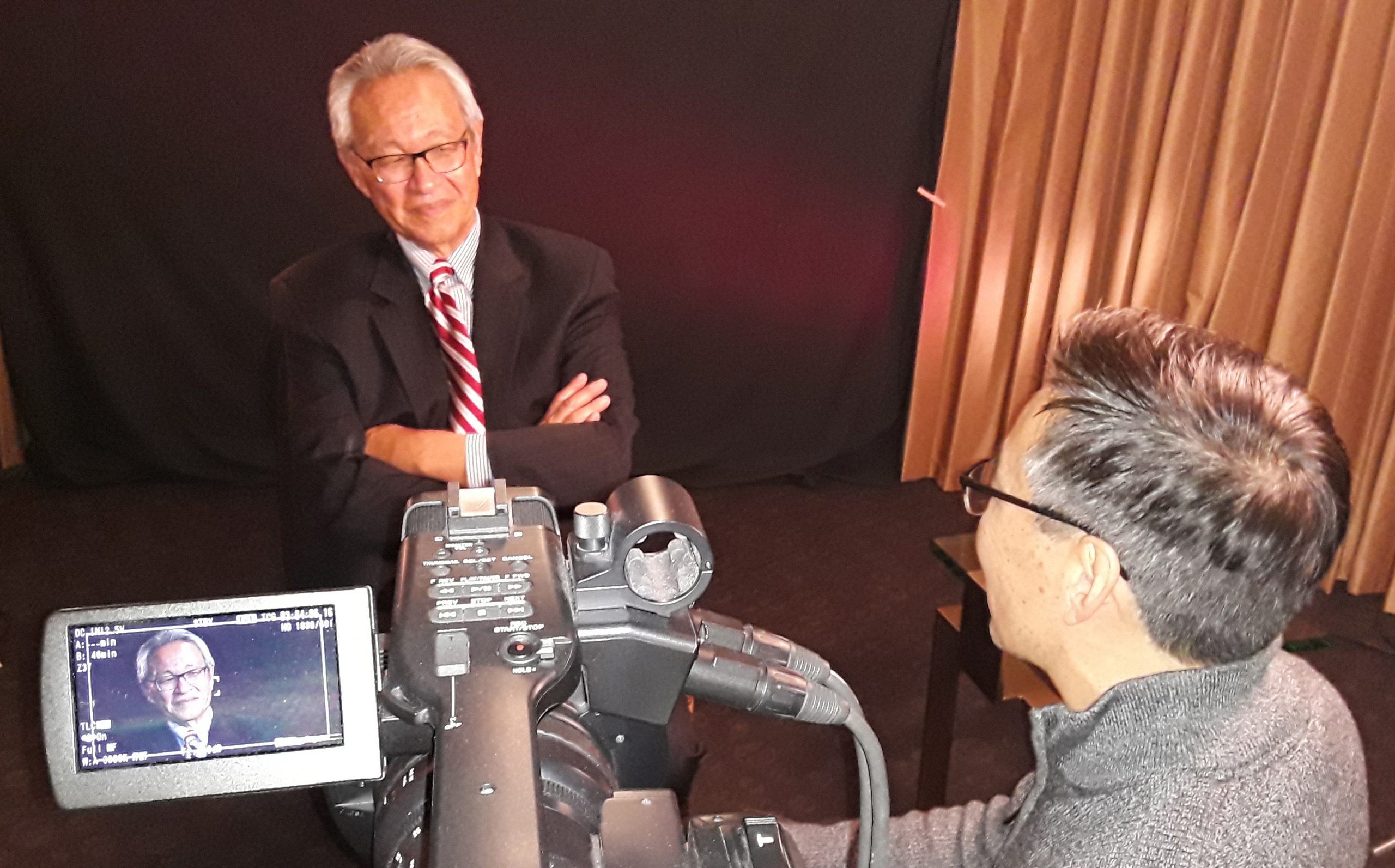October 7, 2021
Like many oral history projects, we’ve spent much of the last 18 months adapting and adjusting to meet the challenges of the pandemic. Knowing that elders and communities of color were acutely impacted by COVID-19 — both the virus itself and racialized violence against Asians and Asian Americans — we had to reconfigure our oral history program to safely conduct new interviews. But after a year-plus pandemic pause, we’re happy to share that our team is once again adding new stories to Densho’s digital archives.
Our first interview took place in July with Yoshiye “Yo” Yasuda. Yo grew up in San Francisco’s Japantown before the forced removal under Executive Order 9066. Later, as a young woman, she worked for civil rights attorney Wayne Collins, who aided nearly 5,000 Nisei who had renounced their U.S. citizenship under the duress of WWII incarceration and faced deportation to Japan. She was able to attend college and earn her degree in occupational therapy at San Jose State in the 1950s.
Yo went on to work as an occupational therapist (with a hiatus to raise her family) until she retired. After graduating, she went to New York, where she met her husband Tetsu. His work as a civil engineer brought them both to Seattle, where they ultimately settled and raised their family.
Yo’s son, Mark Yasuda, shared his thoughts about what it means to have his mom interviewed by Densho:
“I’d like to thank Densho for their service to the Japanese American community, and dedication to recording the history of the Issei and Nisei experience of the 20th century. Densho’s considerable collection of interviews of former internees, in addition to archival material and the encyclopedia, are a fabulous resource for the Japanese American community and for anyone interested in learning more about this chapter of our history.
“My mother’s story is a part of the Nisei experience: that of a child growing up in San Francisco’s Japantown, caught up in the internment and taken to Tanforan and then Topaz. After the war, she, returned home and later spent a few years working in the office of civil rights attorney Wayne M. Collins, helping to support his work on behalf of Japanese Americans impacted by the internment. I am grateful for Densho for including her experience among their vast collection of interviews and preserving Mom’s story for future generations.”
Yo’s interview joins nearly 110,000 oral histories, photos, and other objects in the Densho Digital Repository — each of them representing an individual story that helps keep the history of Japanese American WWII incarceration alive. Many thanks to Yo and the Yasuda family for sharing these important memories with us!
Our current oral history project receives support from the California Civil Liberties Public Education Program and the U.S. Department of the Interior, National Park Service, Japanese American Confinement Sites Grant Program. We’re also happy to announce that Densho has received an NEH Sustaining Humanities through the American Rescue Plan grant for 2022. This funding allows us to complete 30 new interviews next year — so keep an eye out for more oral histories coming soon.
—
By Densho Staff
[Header photo: Tom Ikeda interviews Ronald Ikejiri during a 2019 Densho oral history recording in Los Angeles. Photo by Densho staff.]
